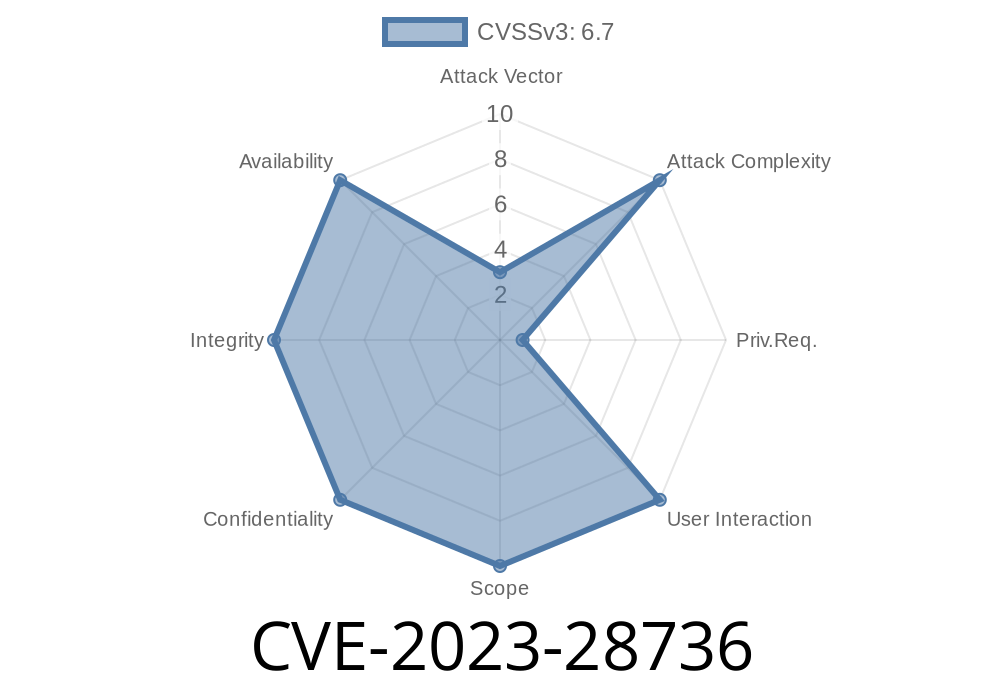Buffer overflows remain one of the oldest, yet most dangerous, vulnerabilities in software. In March 2023, a flaw tracked as CVE-2023-28736 was identified in some versions of Intel(R) SSD Tools software, specifically those using mdadm before version 4.2-rc2. This bug can let a privileged local user escalate privileges to potentially take full control of the system. Let’s break it down in easy terms, see how it can be exploited, and understand how to fix it.
What is mdadm and Why Does It Matter?
mdadm is the standard Linux utility used to manage and monitor software RAID arrays. Many servers and workstations use RAID for storage reliability, so vulnerabilities in tools like mdadm can have serious consequences.
Intel’s SSD management tools can bundle or utilize versions of mdadm for disk management tasks. If you’re running a version of Intel SSD Tools that includes a vulnerable mdadm build, you might be at risk.
The Vulnerability: Buffer Overflow
A buffer overflow occurs when software writes more data to a fixed-length chunk of memory (a buffer) than it can hold. If attackers can control the inputs to such a buffer, they can overwrite critical data — sometimes even execute arbitrary code.
In the case of CVE-2023-28736, mdadm failed to properly check the boundaries in certain command-line argument parsing routines. This flaw can only be exploited by a privileged local user, not by a remote attacker.
> Source: NVD - CVE-2023-28736
Technical Details with Example
In vulnerable versions, passing large or malformed input as arguments to mdadm can trigger the buffer overflow. Let’s look at a simplified vulnerable code snippet:
// simplified example from mdadm's argument processing
char buf[100];
if (argc > 1) {
strcpy(buf, argv[1]); // No size check!
}
By feeding a string longer than 100 characters via the command line, a user could overflow buf and corrupt adjacent memory — possibly overwriting function pointers or return addresses.
Exploit Example
Suppose the software is setuid root (common for disk utilities), and you have a shell on the machine as a regular user. Here’s a simple proof of concept in bash, triggering the buffer overflow:
./mdadm $(python3 -c 'print("A"*200)')
Replace ./mdadm with the vulnerable binary path.
Corrupt system data
> Note: A working privilege escalation exploit would require careful crafting, often involving knowledge of memory layout, and may differ between systems.
Impact
Escalation of Privilege:
A local attacker who already has some account on the system could potentially become root, bypassing all usual permissions.
Data Integrity and Stability Risks:
Aside from privilege escalation, buffer overflows can lead to data corruption or system instability.
Subscribe to CVE feeds for regular alerts.
> Official Patch Reference:
> mdadm commit fixing CVE-2023-28736
External References
- Intel Security Center: CVE-2023-28736
- NIST NVD CVE-2023-28736 Page
- GitHub mdadm Repository
Conclusion
CVE-2023-28736 is a classic buffer overflow in mdadm, bundled in some Intel SSD Tools. It’s only exploitable by local privileged users, but the impact can be critical—full system compromise. Mitigating this bug is as simple as upgrading to a patched version.
Stay updated. Patch early. And always audit local access on critical systems.
If you want to test if you’re affected, check your mdadm and Intel SSD Tools version now.
Timeline
Published on: 08/11/2023 03:15:00 UTC
Last modified on: 09/25/2023 18:30:00 UTC
